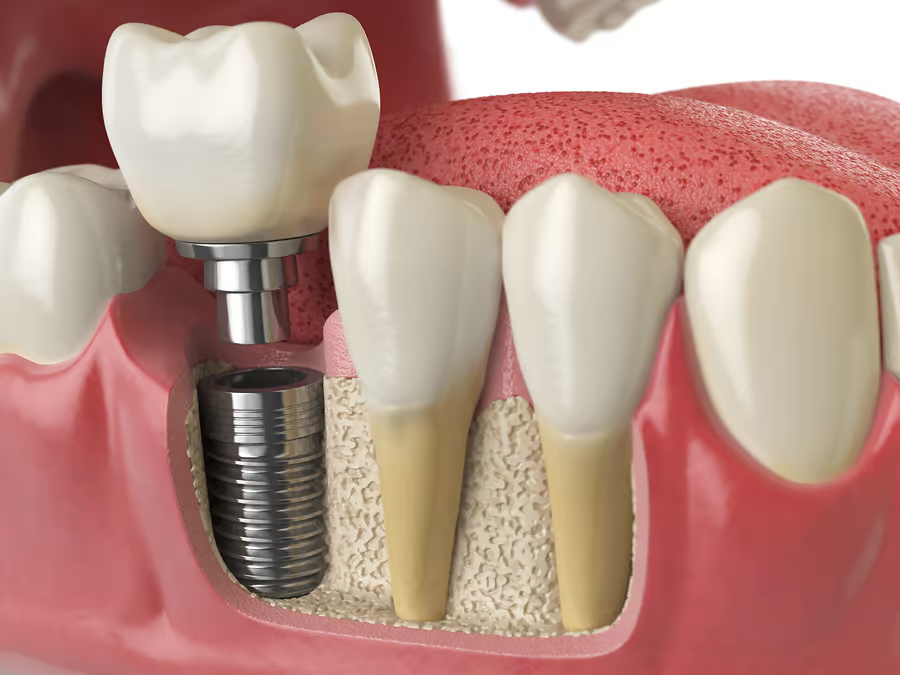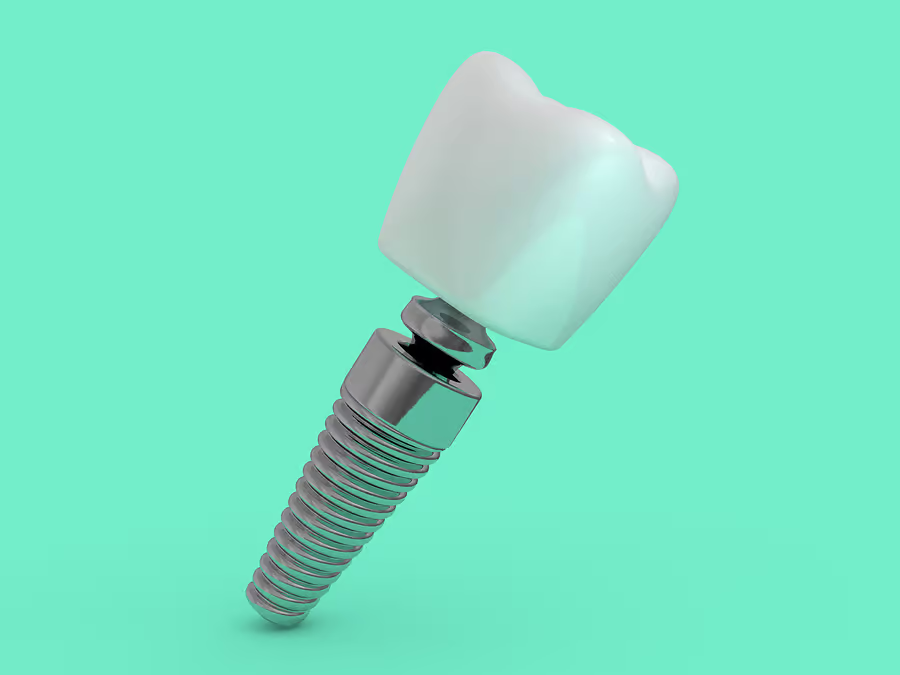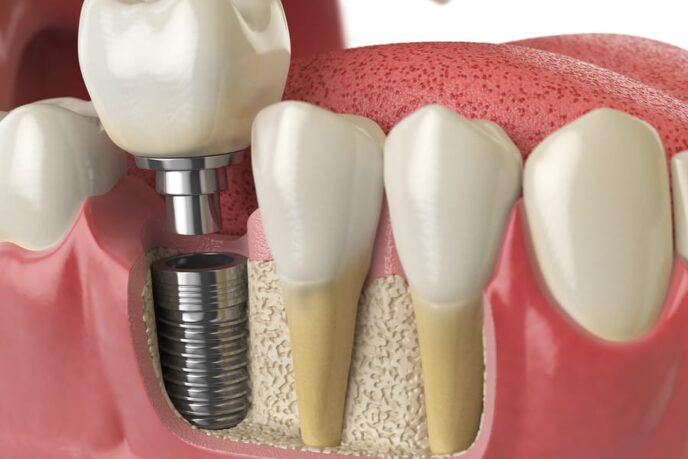Dental implants have probably been the best dental invention of last century. It seemed logical that if one could pin broken bones together with metal plates and screws, one should naturally be able to put a screw into the jaw and have a new tooth. Right? But I am sure you have, by now, heard friends or family telling you of a bad experience with dental implants. Or you might have heard of the implant crown breaking or the screw coming loose? Before I get into this, lets first look at why you would need an implant in the first place.

Why do you need an implant?
The most common reason for having a dental implant is because you’ve lost a tooth or teeth. But is this actually cause for concern? Your mouth is such an integrated environment between teeth, bone, gums, muscles and bacteria, not to mention the fact that we are artists at adapting to missing body parts. But yes, if you think of your mouth like a soccer team, if one of your players is off on a red card then the rest of the team has to work that much harder.
So can my new dental implant function like a normal tooth?
Yes, for the most part. You will be able to function well with one when chewing and any other normal oral function. You will, however, have to keep your new implant in tip-top shape because the gum and the bone are very sensitive areas when it comes to plaque and infection. If the bone gets infected around the implant, there is a chance that it will fail .
So why does an implant fail or the screw get loose?
There are a number of common causes of implant failure whether they fail early on or later in their life. But mostly, the main causes are gum and bone infection, lack of cleanliness, heavy grinding and loose screws. Sometimes there are systemic reasons such as diabetes or auto-immune diseases. But these don’t mean you are not a candidate for an implant, we just need to work around your systemic issues. General wear and tear will also play a role just like it does with your natural teeth. Any wear and tear could loosen the screws holding the crowns onto the implants over time. This is something that is easily remedied by regular yearly visits to check on screw tightness and gum and bone health.

Does my implant have a life-time guarantee?
No, unfortunately not. Like any other prosthesis in your body, a hip or a knee for example, the average survival rate is 10-15 years. There are obviously implants that are in peoples’ mouth that are much older than this. And conversely there are those that fail much sooner. But if you look after them well and visit your hygienist religiously and wear your night guard every night, you are giving the implant the best chance at a long survival.
Would you still get an implant knowing all this?
Yes, I definitely would consider an implant personally. With the knowledge that I have to look after it and that it might not last more than 15 years, it still gives me 15 years with a tooth in my mouth………
Give us a call at Enamel if you’d like to investigate more about how implants might help change your life.
By Dr Sheryl Smithies
Associate Dentist at Enamel Dentistry

